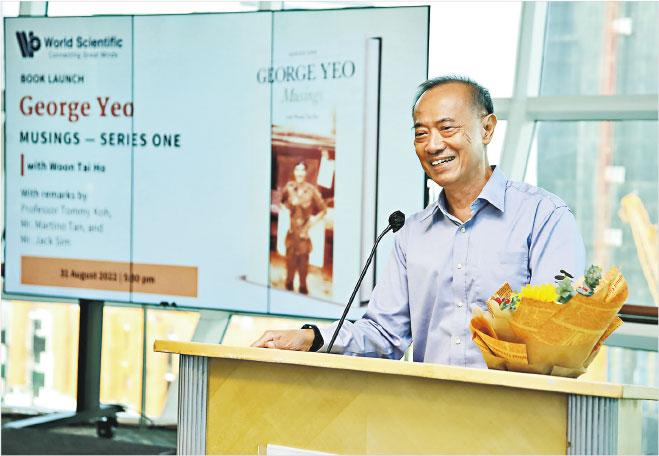<轉載自2022年10月17日 明報 社評>
中共二十大昨天在北京開幕,中共總書記習近平向大會宣讀的報告,只是報告的節選版。報告回顧總結了過去5年和10年的中國經驗,提出了中共未來新的中心任務:帶領全國各族人民全面建成社會主義現代化強國,以「中國式現代化」全面推進中華民族偉大復興。報告的主基調是強調中共統攬全局的領導地位,突出應對挑戰的「鬥爭精神」、憂患意識、底線思維,反映中央對世局動盪不安的判斷與憂慮。同時,從報告中對十八大(即習近平就任總書記)以來的成就評價,以及會前的文宣造勢看,二十大主題之一,就是進一步確立習近平在黨內的核心地位及其思想的指導地位,這一點,應該會在後續黨章的修訂及相關決議中,得到體現。
經濟發展進入新常態 滿足美好生活新需求
五年一度的黨代會,是中共的代表大會,與每年一度的政府工作報告最大的不同,就是突出政治性及黨建內容,經濟方略反而非其重點。但由於中共的執政地位,黨代會報告對中國的政經走向影響更為深遠,如十三大的「社會主義初級階段」理論,十四大的「社會主義市場經濟」論斷,十五大的「中國特色社會主義」理論,十六大、十七大的小康社會提法等,都影響長久。黨代會一般是總結5年的工作,但今年恰逢習近平在十八大上擔任總書記10周年,而這10年已被稱為「新時代」,所以二十大只是「新時代」的一個新坐標,經過今次大會「兩個確立」後,習近平新時代料將成為中共一個新的里程碑。
因此,二十大報告既回顧十九大以來5年的工作,亦總結新時代10年的成就。根據官方數字,10年間中國經濟總量由54萬億元(人民幣)增至114萬億元,佔世界經濟比重超過18%,國內生產總值(GDP)年均增長6.6%,對世界經濟增長的平均貢獻率達38.6%,超過七大工業國(G7)貢獻率的總和,是推動世界經濟增長的第一動力;脫貧攻堅令近1億人口擺脫絕對貧困,中國已形成全球最大規模中等收入群體,建成世界上規模最大、覆蓋人口最多的社保體系,各級教育普及程度達到或超過中高收入國家平均水平……
在報告的15個章節中,講經濟發展的只有第四部分「加快構建新發展格局,着力推動高質量發展」,這並非意味經濟發展不再重要,而是因5年前北京已判斷,內地經濟進入「新常態」,發展質量更重要,而中共已經過了需靠經濟高速增長來維持執政合法性的階段。報告中提出的「全過程人民民主」、「科教興國戰略」、「增進民生福祉」、「推動綠色發展」,都屬於滿足人民對「美好生活」新的需求。
習近平上台之初,以掀起反腐肅貪風暴立威,10年來,受查處者佔中共黨員總數約4.5%。當年中共開國領袖毛澤東曾稱,中共跳出「治亂興衰歷史周期率」的答案是「讓人民監督」,習近平在報告中宣布的第二條答案則是「自我革命」,並誓言「全面推進黨的自我凈化、自我完善、自我革新、自我提高」。
創造人類文明新形態 準備驚濤駭浪式考驗
去年中共慶祝建黨100周年之際,習近平宣布脫貧攻堅戰告捷,實現「全面小康」,下一步目標是在本世紀中葉中華人民共和國成立100周年(2049年)時建成「社會主義現代化強國」。在昨天的報告中,習近平對「中國式現代化」作了明確定義:即是中共領導的社會主義現代化,「是人口規模巨大的現代化,是全體人民共同富裕的現代化,是物質文明和精神文明相協調的現代化,是人與自然和諧共生的現代化,是走和平發展道路的現代化」。這意味着「中國式現代化」,摒棄了西方以資本為中心、兩極分化、物質主義膨脹、對外擴張掠奪的現代化之路。
中共總結過去10年的經驗時,常常賦予其世界性意義,脫貧攻堅被形容為「世界減貧史上的奇蹟」,「中國式現代化」就被形容為「創造人類文明新形態」,為世界發展史提供了中國經驗、中國方案。這固然是中方自信的表現,但就似乎印證了美國最新國家安全戰略的判斷,即中國是唯一既具有重塑國際秩序意圖,又具有愈來愈多能力來推進這一目標的國家。
對於中美博弈,二十大報告中並未正面提及,但提醒未來5年「必須增強憂患意識,堅持底線思維,做到居安思危、未雨綢繆,準備經受風高浪急甚至驚濤駭浪的重大考驗」,呼籲「堅持發揚鬥爭精神」,「增強全黨全國各族人民的志氣、骨氣、底氣,不信邪、不怕鬼、不怕壓,知難而進、迎難而上」。
中國自古就是一個經常面對周邊游牧民族侵擾的動員型國家,中共建政以後,進一步強化了國家的動員能力,新時代10年來,重塑了一度廢弛的這種能力。在疫情、戰爭、制裁等打擊下,當今全球經濟已逐漸進入準戰爭時代,從二十大報告將「推進國家安全體系和能力現代化」單設專章,又敦促「實現建軍一百年(2027年)奮鬥目標」來看,也是為未來世局的動盪預作政策準備及動員。
Report of the 20th CCP
Congress
The 20th National
Congress of the Chinese Communist Party (CCP)opened in Beijing yesterday (16
October). The report read by CCP General Secretary Xi Jinping to the Congress
was just an excerpt. In the report, what China has gone through over the past
five and ten years is reviewed and summarised, and a new central task for the
CCP in the future is proposed: leading the people of all ethnic groups in the
country to build a powerful, modern socialist country in all aspects and promoting
the great rejuvenation of the Chinese nation comprehensively with
"Chinese-style modernisation".
According to official
figures, China's total economic volume has increased from RMB 54 trillion to
RMB 114 trillion over the past ten years, accounting for more than 18% of the
world economy. China's GDP has grown at an annual average rate of 6.6%,
contributing to 38.6% of global economic growth on average and exceeding the
contribution percentages of the seven major industrialised countries (G7) added
together. In other words, China has been the most important driving force for
world economic growth. Efforts to alleviate poverty have lifted nearly 100
million people out of absolute poverty, and China has become the world's
largest middle-income group.
Of the 15 chapters in
the report, only the fourth part, namely "Accelerating the construction of
a new development pattern and promoting high-quality development", focuses
on economic development. This does not mean that economic development is no
longer important. It is simply because Beijing judged five years ago that the
mainland economy had entered a "new normal", and the quality of
development was more important. The CCP has also passed the stage when it had
to rely on rapid economic growth to maintain the legitimacy of its rule. Ideas
proposed in the report, such as "people's democracy in the whole
process", "the strategy of rejuvenating the country through science
and education", "improving people's livelihood and well-being"
and "promoting green development" are all about the new demands of
the people for a good life.
When Xi Jinping first
came to power, he established his authority by launching an anti-corruption
storm. Over the past 10 years, about 4.5% of CCP members have been investigated
and punished. Mao Zedong, the founding leader of communist China, once said
that the CCP's answer to how it could escape the "historical cycle of
rises and falls" was the "supervision of the people". The second
answer provided by Xi Jinping in his report was "self-revolution", as
he vowed to "fully pursue the self-purification, self-improvement,
self-innovation, self-enhancement of the party".
In yesterday's report,
Xi Jinping gave a clear definition of "Chinese-style modernisation":
socialist modernisation led by the CCP, which meant "a modernisation of a
huge population, a modernisation of the prosperity for all, a modernisation
with a combination of material civilisation and spiritual civilisation, a
modernisation of the harmonious coexistence of man and nature, and a
modernisation of the path of peaceful development".
Amid the impacts of the
COVID-19 pandemic, war, sanctions and others, the global economy has gradually
entered a quasi-war era. Judging from the fact that the report of the 20th CCP
Congress has a special chapter dedicated to "promoting the modernisation
of the national security system and capabilities" and the call to
"achieve the centenary of military building (2027)", it can be seen
that they are also policy preparation and mobilisation to tackle future turmoil
in the world.
中國式現代化非西化 二十大報告居安思危
中共二十大昨天在北京開幕,中共總書記習近平向大會宣讀的報告,只是報告的節選版。報告回顧總結了過去5年和10年的中國經驗,提出了中共未來新的中心任務:帶領全國各族人民全面建成社會主義現代化強國,以「中國式現代化」全面推進中華民族偉大復興。
根據官方數字,10年間中國經濟總量由54萬億元(人民幣)增至114萬億元,佔世界經濟比重超過18%,國內生產總值(GDP)年均增長6.6%,對世界經濟增長的平均貢獻率達38.6%,超過七大工業國(G7)貢獻率的總和,是推動世界經濟增長的第一動力;脫貧攻堅令近1億人口擺脫絕對貧困,中國已形成全球最大規模中等收入群體。
在報告的15個章節中,講經濟發展的只有第四部分「加快構建新發展格局,着力推動高質量發展」,這並非意味經濟發展不再重要,而是因5年前北京已判斷,內地經濟進入「新常態」,發展質量更重要,而中共已經過了需靠經濟高速增長來維持執政合法性的階段。報告中提出的「全過程人民民主」、「科教興國戰略」、「增進民生福祉」、「推動綠色發展」,都屬於滿足人民對「美好生活」新的需求。
習近平上台之初,以掀起反腐肅貪風暴立威,10年來,受查處者佔中共黨員總數約4.5%。當年中共開國領袖毛澤東曾稱,中共跳出「治亂興衰歷史周期率」的答案是「讓人民監督」,習近平在報告中宣布的第二條答案則是「自我革命」,並誓言「全面推進黨的自我淨化、自我完善、自我革新、自我提高」。
在昨天的報告中,習近平對「中國式現代化」作了明確定義:即是中共領導的社會主義現代化,「是人口規模巨大的現代化,是全體人民共同富裕的現代化,是物質文明和精神文明相協調的現代化,是人與自然和諧共生的現代化,是走和平發展道路的現代化」。
在疫情、戰爭、制裁等打擊下,當今全球經濟已逐漸進入準戰爭時代,從二十大報告將「推進國家安全體系和能力現代化」單設專章,又敦促「實現建軍一百年(2027年)奮鬥目標」來看,也是為未來世局的動盪預作政策準備及動員。
